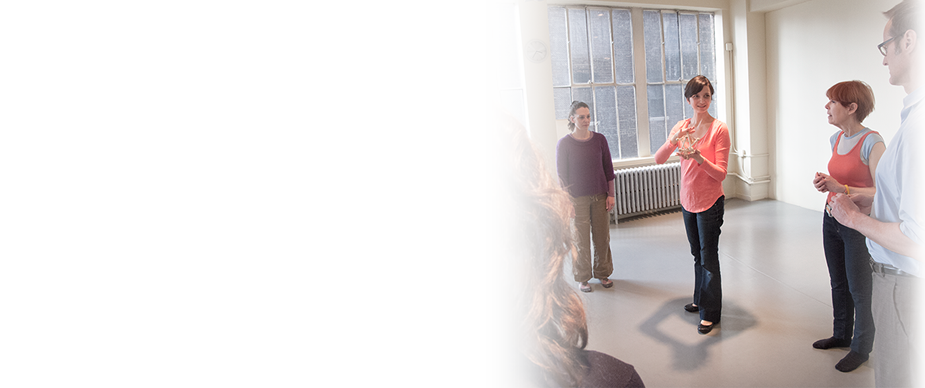What does "Fake it til you make it" really mean?
/I’m sure you’ve heard the expression, “Fake it til you make it.” I can appreciate it on one hand as an introvert who has developed skills for interacting outside of my comfort zone. (My comfort zone used to be 1:1 interactions and ideally not with anyone particularly gregarious.)
But...I really don’t like the word “fake” in there. What’s meant by “fake”? Are you supposed to pretend? If so, how exactly? Maybe you don’t think you’re an actor….
I was an actor and as a young student, I learned that acting is actually the opposite of pretending. It’s easy to tell if someone is pretending. We pick up on all sorts of cues that tell us that, whether it’s someone speaking to us or on a stage.
Rather than learning to pretend, actors learn how to refine they’re ability to sense and make choices. Sensing and making choices is what we all do in life more or less unconsciously most of the time. We sense (receive) information, make choices, and respond.
In a conversation, we are responding to verbal and non-verbal cues and we respond with our voices, breathing patterns, hands, shoulders, eyes, and how we shift our weight and in countless other ways. These choices and actions affect whether we feel or come across as awkward, confident, pushy, intense, reserved...they affect the impression we give and how people respond to us. We pick up the same types of cues from others. Conversation becomes a series of actions and reactions bouncing back and forth.
The way we use our bodies is nuanced and it takes practice and often guidance to tune into that. As a young actor, I was aware of this, but the way I was using my body and voice, the way I was responding and making choices was so habitual and automatic that I didn't understand how to change it. How can you change something that you aren’t consciously aware of?
Given my lack of nuanced awareness when I began acting school, all I could do was pretend…I would just try to do something exaggerated, while still hanging onto my old habits, kind of like when people try to hold themselves up straight. It comes off as forced or stiff. If they actually changed the nuanced habits causing the forced posture, they’d seem relaxed and present.
When I first took an Alexander Technique class, I opened the door to nuanced awareness. Suddenly a wide range of choices were available to me and not just in a scene from a play, but in life in general as well.
Over the years I’ve honed my ability to interact with all sorts of personalities and engaging groups of people. My comfort zone is still 1:1, but I can choose to be effective and comfortable in many zones. I used to feel carried away by the bouncing back and forth of conversations. Now I feel more in charge of how I respond.
There’s a reason why Alexander Technique is taught at many prominent acting schools and it’s not just to help actors stand straighter and project their voices. It’s to help them be in conscious command of their physical presence, choices, and actions so they can behave in an authentic way and not just stick a layer of "pretending" over a bunch of habits.
Anyone (not just actors) can learn these skills, whether they want to use them to change their posture to avoid back pain, or to be more effective in the way they communicate. It's ok to "fake it til you make it", but only if you can fill in the crucial missing piece in that statement, which is to learn what exactly to do to "fake" it so that it's not fake.
Do you ever struggle with adapting to different people and situations? Do you want to feel more present, effective, and in charge of how you present yourself and communicate? Check out my workshop, Posture Under Pressure: Command Your Presence with Effective Communication.
Click here for more information on the course. The next workshop will be on Sunday, October 6.

